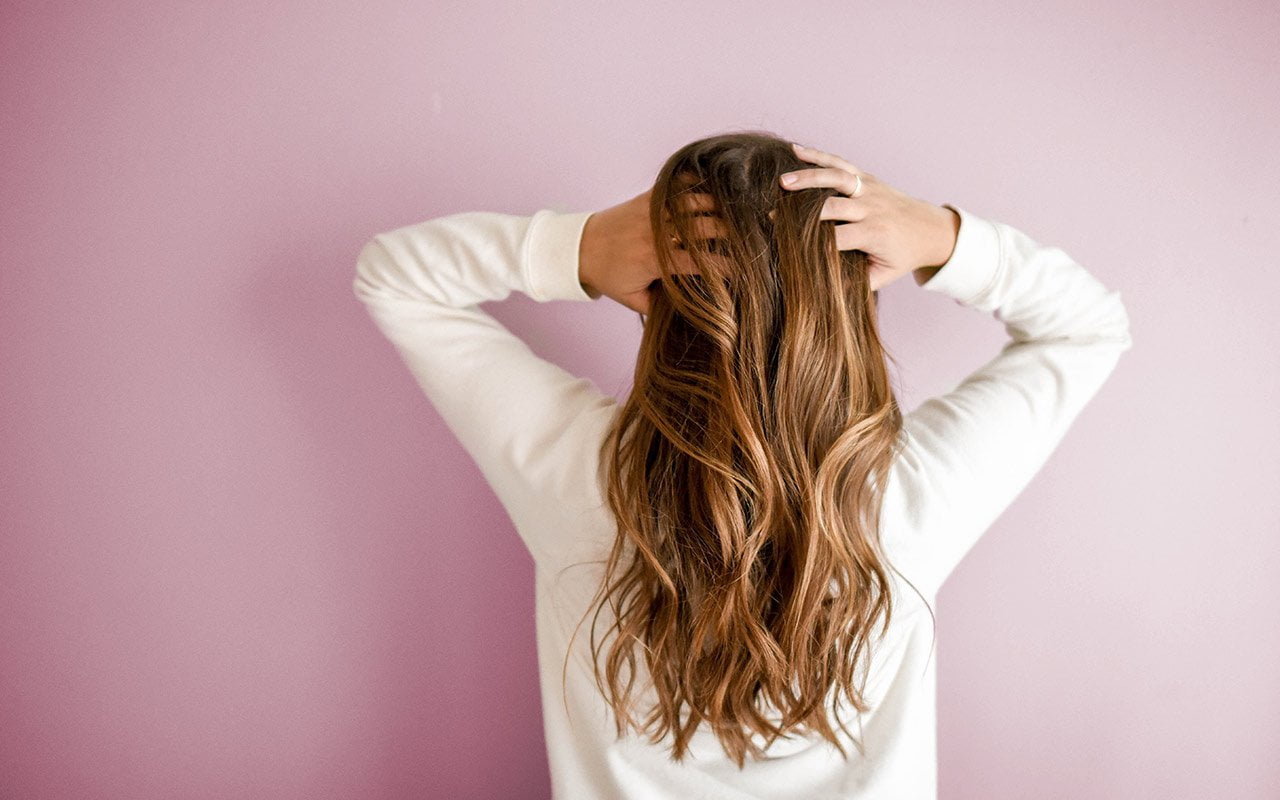These are 17 effective methods to make your hair grow faster. The methods are extremely simple and you can do it yourself at home.
There are many ways to grow your hair quickly. Your hair will grow quicker if you take the proper care and follow the correct methods. Your hair will eventually become dry, brittle, and damaged if you don’t care for it properly. This article will give you some tips that can help your hair grow faster.
The hair on the head is an area that most people consider a given. Women and men spend thousands of dollars on hair treatments and products to grow their hair thicker, stronger, and healthier. Many of these products are scams. But there are natural methods to grow your hair faster than ever before.
Hair is an integral part of a person’s exterior appearance and can also be a sign of their social status. There are many problems that can happen regardless of how you wear your hair. Hair loss and hair thinning are not pleasant. These symptoms can be very distressing and a person should seek immediate treatment.
Healthy hair growth is the key to thick, full hair. Healthy hair is beautiful hair, and healthy hair will make you feel happier. You must take good care of your hair if you want it to grow faster. We have compiled this list of some tips to help your hair grow faster.
This article also contains the most important and effective advice to help you solve your hair loss problem quickly and effectively.
Everyone desires long, healthy hair. There are many reasons why you want your hair to grow faster. It is uncomfortable to see your hair cut short or medium. You desire more volume in your hair. You desire to be more beautiful. It makes you feel sad, especially if it is too short.
Everyone wants to grow their hair faster. There are many ways to do this. These tips will help you grow your hair faster.
Table of Contents
Hair growth stages
Each strand of hair grows in its own way.
These are the three stages:
- Anagen is a phase of active hair growth that lasts between 2-8 years
- Catagen is a transition phase in which hair stops growing. It lasts about 4-6 weeks
- Telogen: The resting phase, where hair falls out, lasts for 2-3 months
On average, 90-95 percent to 95 percent of hair follicles are in the anagen stage. This means that between 5-10% of the hair follicles are in the anagen phase. Telogen is responsible for the 100-150 hairs which fall every day.
How fast can hair grow
The total number of hair follicles that we have in our lives is what we are born with. Although there may be approximately 5 million hair follicles on our bodies, our heads have about 100,000. Some follicles cease producing hair as we age. This is why baldness and hair loss occurs.
According to Hair Scientists, hair grows an average of 1/2 inch per month. This is a total of 6 inches for your hair per year.
Your hair growth rate will be affected by your lifestyle.
- Age
- Particular hair types
- Overall health
- Other health conditions
Although science has a few clues about how hair grows at the cellular level, it is not enough to be able to speed up the process.
The length of the anagen phase depends on how long you have hair and if your follicle base is continuing to grow and becoming hair cells.
When matrix cells reach the top follicle, some of their structure is lost and hair grows. Hair strands are formed when the keratins and matrix cells combine to create a new structure.
Researchers continue to investigate what triggers the anagen phase. There are steps that you can take to encourage healthy hair in the anagen phase.
What are the factors that can influence hair growth?
Hair growth can be affected by a number of factors, including:
- Hair loss can be caused by genetics or family history
- Hormonal changes
- Insufficient nutrition
- Medikamente
- Stress
- Trauma that causes damage to follicles
- Other diseases and conditions
You should also remember to schedule an appointment with your doctor if you experience severe and unexplained hair loss. Certain illnesses and conditions can lead to hair loss.
Pregnant women may feel their hair growing faster than normal. Women who just had babies may feel their hair is falling out faster than usual.
This is because estrogen, a hormone, causes women to have more hair follicles during pregnancy. The “resting” phase of hair follicles is where the baby’s hair begins to fall off.
The 17 Best Ways To Boost Hair Growth
Although genetics plays a significant role in maintaining healthy hair, there are many other factors that can also play a part.
There are many ways to grow your hair faster, even though there is no magic cure or potion that will instantly make your hair grow.
Let’s take a look at 17 ways to make your hair grow faster.
Avoid restrictive dieting
It is impossible to control every factor that can affect hair growth. There are some things you can do to reduce the risk of hair loss and improve growth. Restrictive diets can reduce the nutrients and resources needed for hair growth.
Hair growth is not a priority over other bodily functions. Therefore, it is difficult to stop hair growth quickly if your body is under stress from restrictive diets. Hair shedding can continue for months even after you eat a healthy diet.
Check your protein intake
Hair can shed if your diet is restrictive. For optimal hair growth, a balanced diet that includes adequate protein intake is essential. We recommend that you consume at least 50g of protein per day.
Try caffeine-infused products
Although we all know caffeine can boost your energy, a 2014 study revealed that it could also promote hair growth.
The study found that caffeine may promote hair growth at all levels, including the molecular, cellular, and organ levels.
These recommended products can be found online if you are interested in caffeine-infused products:
- Glimmer Goddess Organic Caffeine Hair Growth Shampoo contains a combination of ingredients including vitamins, caffeine, and organic plant material.
- TruePure Natural Caffeine Shampoo contains caffeine, as well as other ingredients such as red clover, niacin, and vitamins.
Take essential oils
Essential oils are not only fragrant but may also promote hair growth.
A study showed that 400mg of pumpkin seed oil per day in capsules resulted in a significant increase in hair growth. The hair count of men who took pumpkin oil increased by 40% after 24 weeks.
Another study examined four groups of mice and gave each a different hair treatment. These treatments included saline and jojoba oils, 3 percent minoxidil, and 3 percent peppermint.
According to the study, peppermint oil gave the greatest hair growth results. These included significant increases in dermal thickness, number of follicles, and depth.
Research also shows that rosemary oil is just as effective at restoring hair growth as minoxidil (the active ingredient in Rogaine).
Boost your nutrient profile
Certain vitamins, minerals, and essential fatty acids are particularly important for your overall health. They also play an important role in providing the energy your body needs to grow your hair. These include:
- Biotin
- Vitamin C
- Vitamin D
- Vitamin E
- Zinc
- Iron
- Omega-3 and omega-6
A study concluded that omega-3 and 6 supplements may be beneficial in preventing hair loss. Another study found that zinc levels could play a significant role in hair loss.
Although there is not much research to support the efficacy and safety of biotin, we did find 18 cases where biotin supplementation led to clinical improvements in hair and nail health.
Hair growth vitamins, gummies, and supplements usually contain a mixture of ingredients that are “hair-friendly”, such as biotin, folic acid, vitamins D, C, E, and omegas.
These ingredients are supposed to work together to make your hair longer, healthier and shinier with continued use. It is, at least, that’s what it seems (yes, we’ll get into the details).
14 Best Foods to Grow Hair
Your hair grows about 0.5 inches (1.25cm) per month and 6 inches (15cm) per year. It depends on many factors, including age, health, genetics, and diet.
While you cannot change genetics and age, you do have some control over your diet. Hair loss can be caused by a poor diet.
A balanced diet that contains the right nutrients can promote hair growth, especially for those who are experiencing hair loss.
These are the top 14 foods that promote hair growth.
- Avocados
- Beans
- Berries
- Eggs
- Fatty Fish
- Meat
- Nuts
- Sweet Potatoes
- Spinach
- Seeds
- Sweet Peppers
- Shrimp
- Soybeans
- Oysters
Hair loss can be caused by a lack of vitamins A, C, D, and E. This includes iron, vitamin B vitamins, zinc, iron, biotin, and essential fatty acid. Correcting any deficiencies in any of these nutrients can help reduce hair loss and increase hair growth.
You can add the following foods to your diet if you feel you are lacking any of these nutrients.
Hair growth can be affected by genetics, age, and hormones. However, it is important to get the right nutrients. Here are five vitamins and three other nutrients that could be vital for hair growth.
The best Vitamins to help hair grow:
- Vitamin A
- B vitamins: The most well-known B vitamin is biotin.
- Vitamin C
- Vitamin D
- Vitamin E
The 3 best nutrients for hair growth:
- Iron
- Zinc
- Protein
Even if you don’t have a deficiency, large amounts of vitamins and minerals can cause serious side effects. Talk to your doctor to determine whether you are suffering from a vitamin or mineral deficiency.
The best way to get these nutrients is to eat a balanced diet of real food that includes lots of nutrient-dense foods.
Indulge in a scalp massage
A scalp massage can promote relaxation and reduce stress. A 2016 study found that scalp massages may be beneficial for hair health.
A 4-minute scalp massage was tested for effectiveness in the study. The researchers discovered that after 24 weeks, the hairs of the nine participants in the study were thicker than they were at the beginning.
Although the study did not show any significant difference in hair growth it is possible that scalp massages may dilate the blood vessels below the skin.
This may result in thicker hair that is less likely to be damaged or break off. You can either get a professional massage for your scalp or do it yourself at home.
Consider platelet-rich plasma (PRP).
Patients with hair loss have shown promise for PRP therapy. Although more studies are necessary, one study suggested that PRP therapy may be an effective option for hair loss.
PRP is a revolutionary treatment that injects a high concentration of the patient’s platelets to stimulate hair growth. Platelets, proteins that are derived from the patient’s bloodstream and DNA, can be used to act as stem cells in the body when they are placed back into their bodies.
Scalp injections with PRP can stimulate hair growth by stimulating dormant hair cells. The treatments are performed once per month for three months and then every six months for maintenance.
Hold the heat
Hair straighteners, curling irons, and hair dryers can cause hair damage and breakage. You may not be able to avoid heat styling, but you might consider limiting the frequency with which you use these tools.
You can reduce hair damage by lowering the temperature of your heated styling tools.
According to a 2011 study of hair loss, using heat protector products before styling your hair with a heated tool can significantly reduce the risk.
Heat treatments are a way to prevent moisture loss from heated tools by creating a protective barrier. These recommended heat protectors are available online.
HSI Professional Argan Oil Thermal Protection is a lightweight mist that protects your hair from heat up to 450oF (232.2oC). Kenra Platinum Blow-Dry Spray is a more expensive option that can reduce blow-dry time while protecting hair from heat.
Discuss minoxidil with your doctor
Some ingredients like minoxidil have been clinically proven to increase hair growth. Minoxidil, which is used to treat hair loss in the back of the heads, is the active ingredient in Rogaine.
Minoxidil products do not require a prescription if they contain less than a certain amount. Any product that contains this drug must be registered with Food and Drug Administration (FDA). Rogaine is not for everyone and results may take up to four months.
Take it easy when coloring your hair
Highlighting hair dye is quite popular with many women. However, hair can break if it is dyed or retouched with chemicals frequently. Experts recommend that you should get your hair highlighted every 6 to 8 weeks. When we reduce these chemicals, hair can grow faster and with less breakage.
Avoid over-shampooing
Over-shampooing can cause dry, brittle hair due to the shampoo stripping the hair’s natural oils. The number of times that you shampoo your hair each week will depend on the type of hair.
Hair with thicker hair can go without washing for several days. However, hair with thinner hair may feel greasy after just one day. Dry shampoo is a great option to absorb excess grease while you wait longer.
Make a Cinnamon-Based Masque
It turns out that cinnamon is more than just a good spice to sprinkle on your oatmeal. It has antimicrobial properties that can be used to stimulate blood circulation and nourish hair.
Apply equal amounts of coconut oil and cinnamon to your hair, with a focus on the roots. Allow it to work for 45 minutes, then rinse off.
Trim Your Split Ends Regularly
Although it might seem counterproductive if you want your hair longer, regular trimming is necessary to remove split ends.8 If left untreated, the split ends can grow up the shafts of hair strands, causing more breakage.
Your hair will not grow if the stylist cuts too much every time you visit. You may need to trim your hair every six weeks depending on how your hair looks and what your daily routine is.
However, the more you take care of your hair every day, the less you will need to trim it and the longer your hair can grow naturally.
Keratin-based products can be used to fill in breaks
Keratin-based products are effective in reducing dryness and making hair look shinier. However, they also have the ability to strengthen hair and prevent future damage.
Be Gentle When Detangling
It’s not easy to detangle your hair properly. But it is an essential step in growing your hair faster. You might be inclined to fumble your hair, slicing it through the brush in a hurry and then calling it quits.
Neglecting to brush your hair properly can lead to split ends and breakage. This is the exact opposite of healthy hair growth. Take your time when brushing your hair.
It turns out that the brush you choose can make a big difference. A brush with metal bristles is useful, but a wide-toothed brush, detangling brush, or paddle brush with rounded bristles can be used to gently remove knots and cause minimal breakage.
It is just as important to choose how you brush your hair as it is what you use. Do not detangle your hair after the shower, as it is most fragile and vulnerable. Instead, comb your hair before you wash it.
Avoid over-shampooing
According to some, over-shampooing can cause dry, and brittle hairs. This is due to the shampoo stripping the hair’s natural oils.
The number of times that you shampoo your hair each week will vary depending on the type of hair. Hair with thicker hair can go without washing for several days. However, hair with thinner hair may feel greasy after just one day.
A dry shampoo is a great option in such situations. It can absorb excess grease and keep your hair longer.
Do a Hot Castor Oil Treatment
Castor oil has not been shown to be effective in hair growth. However, there are some indirect effects that can help your beard grow. The skin’s ability to combat bacteria and fungal growth may protect your hair follicles, which could help keep it healthy and promote hair growth.
Castor oil can be applied directly to the scalp and to the hair. Castor oil is safe to use on the scalp. It works against dandruff and helps promote hair growth.
Castor oil can be used as often as you like, although there is no set amount. However, it is recommended to use castor oil at least once a week for at most three months. This is because that is how long you will see new hair growth.
Castor oil needs to work its magic. Allow castor oil to sit on your hair and stay there for at least 15-20 minutes. Castor oil can be left on for up to a night and then washed the next day.
This will allow the oil to work to its full potential. It is best to rinse it off after two hours.
Castor oil is the undiscovered hero of hair care. You might be tempted to give up coconut oil after reading this.
Castor oil is anti-fungal and antibacterial, so it can be used to treat scalp infections that may prevent hair growth.
It’s also rich in omega-6 fatty acid, vitamin E, and proteins that can penetrate dry hair shafts to retain moisture.
It also makes for a great hot oil treatment: massaging the oil into the roots of your hair will encourage hair growth and nourish your scalp with all the nutrients.
Castor oil can be used to stimulate hair growth. Apply a few drops to your scalp and massage in. Castor oil can be used to treat dry hair. Apply the oil to your hair and then wrap your head in a shower cap for about two hours. Style as usual. Wash your hair with shampoo.
Instantly you’ll notice softening of your hair.
You can make your own conditioner at home by mixing coconut oil with castor oil. This will give you longer hair. Mix one part coconut oil and one part castor oil. Combine well. After shampooing, apply the mixture to the body.
You can also refer to the 8 Natural Tips for Hair Growth below to make your hair grow faster
- Cleanse and stimulate your scalp.
- Consider taking hair-growth supplements like biotin and collagen.
- It is important to protect it from any physical damage.
- Keep it moisturized.
- A wonderful supplement that can help your skin from many angles
- Antioxidants are a good idea.
- Wear protective hairstyles.
- Daily heat styling deserves a break.
- Regular trims are recommended.
Fine lines
Achieving healthy hair means having a healthy scalp. Your beautiful hair will only bloom when your scalp is happy. So, to get beautiful healthy hair, you can apply natural recipes to make hair grow faster.
For example, cut an onion to extract its juice, then mix 3 tablespoons of onion juice with 1 tablespoon of coconut oil and 1 tablespoon of olive oil. Apply evenly to hair, focusing on roots, and leave on for 1 hour before shampooing. This recipe can work wonders – as long as you can stand the smell of it!
In addition, there are many products on the market that are advertised to make hair grow faster, and thicker, but not all products are as good as advertised.
There are many treatments and lotions on the market that can make your hair grow back within a few days, and some work, but they can also make your hair look dry. and unhealthy.
Try following our list of hair growth methods above and comment on the results after 2 months.



